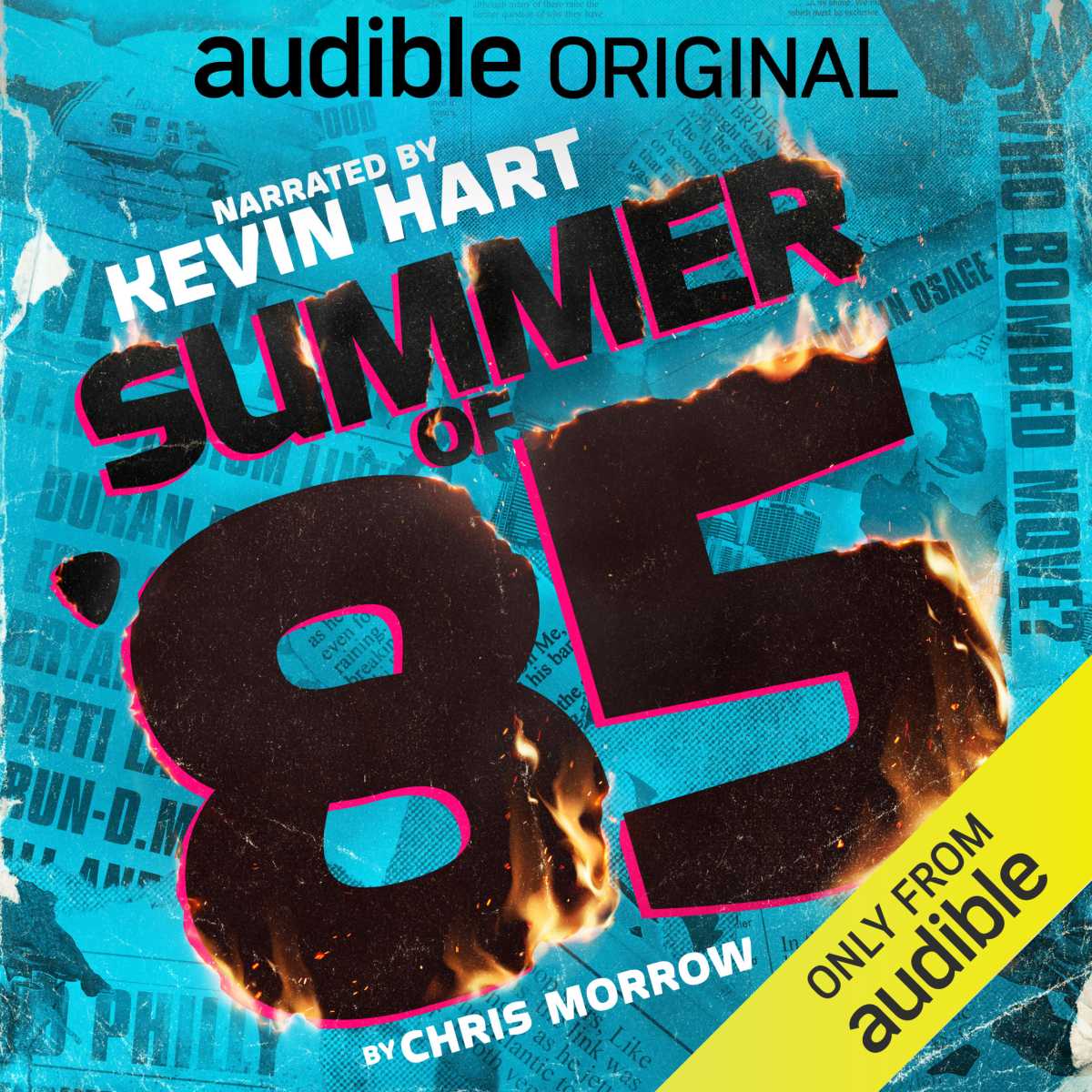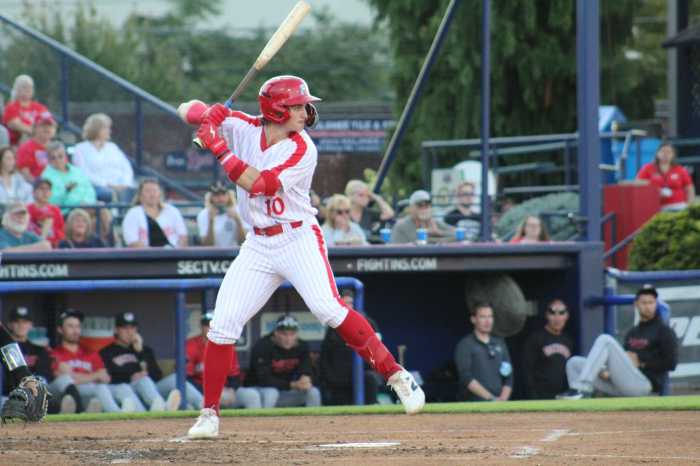On May 13, 1985, longstanding tensions between MOVE, a Black liberation group, and the Philadelphia Police Department came to a head when the city bombed its own people, resulting in death, destruction and a search for answers. Then, exactly two months to the day and only eight miles away, the Live Aid benefit for Africa concert took place. And the irony that the musical event made to “save Africa” happened so closely to the destruction of a group with the last name Africa was not lost on podcaster and born Philadelphian, Chris Morrow.
To chronicle the parallels between the two events, Morrow adapted the ‘Summer of ’85‘ docu-series with Audible. Produced under Kevin Hart and Charlamagne tha God’s recently established audio production banner SBH Productions, the series (which is hosted by Hart) uses archival footage, interviews and more to paint a picture that shows the eerie similarities to today’s climate in the city. But as Morrow hopes, it could possibly showcase what shouldn’t happen, and how we can prevent another MOVE bombing situation from occurring in the future.
Morrow sat down to discuss more about the making ‘Summer of ’85’.
Why cover these two events specifically?
The MOVE bombing and the Live Aid Concert are two stories separately that I’ve always been interested in. I went to Live Aid, it was actually the first concert I’ve ever gone to… so it always played a big role in my life and it was something I’ve thought about. Then the MOVE bombing, that’s something I’ve always been interested in, too. My grandmother’s extended family saw it from the next block—the 6200 block of Osage Avenue, and I’ve followed that story very closely to the point that after the bombing, I attended Ramona Africa’s trial as a spectator at 15 years old— which is probably pretty unusual. I haven’t lived in Philly for close to 30 years. I moved to NYC. But even with somewhere as close as New York, I’ve always been shocked and surprised by how few people knew about the MOVE situation. Whenever I’ve brought it up, people would always be blown away and incredulous that they’ve never even heard about it. So, it’s always been a story I’ve wanted to tell and I’m glad that now I’ve had the opportunity to do it.
Why do you think more people didn’t hear about the MOVE bombing?
With MOVE specifically, I think it’s an event that the City of Philadelphia — talking about the government — very much wanted to go away. After the MOVE bombing, I believe in 1986 they had the MOVE Commission to get to the bottom of what had taken place. But I don’t think there was a lot of clarity, I don’t think there was a moment where people said: This is what happened and this is why it happened. It was a very painful situation for the city and obviously an incredibly painful situation for the families of people who lost their lives, and for people who lost their homes. And not only in the bombing… For 35 years , we’ve never really properly had their homes rebuilt. That’s something I was only vaguely aware of when I started this process, and something that was unbelievable to me. And if I’m being completely candid, the victims in this story were African American. If the roles had been reversed and this was a part of Chestnut Hill that had gotten destroyed in the way that Cobbs Creek did, it would have been a much bigger story and there would have been a lot of media attention continuously on it, and the homes would have been rebuilt properly.
When you decided to make the ‘Summer of ’85’, where did you start in terms of research?
The reason I decided to tell these two stories, I had this moment where I realized that this is kind of crazy….You had the kind of crème de la crème of the rock n roll world come to Philadelphia in the summer of 85 to “feed Africa” or to save Africa, but then that’s the same summer that they bombed the compound of John Africa and his followers—who all had the last name Africa. Then the question becomes, did these two events really intersect? So, one of the first, early conversations I had was with a guy named Mike Africa Jr whose parents were both part of the MOVE 9, and his parents had grown up in the organization. I asked, I know you’re a young kid at the time, but did you ever have thoughts about Live Aid? And he said oh yeah…I’ve been waiting for someone to ask me this question all of these years.
He was living with his grandmother at the time and she was furious that he and his cousins wanted to go to the Live Aid concert. When he asked her why was she so upset, she said don’t tell me all of these white people are coming to save Africa right after they killed the Africas…that was an aha moment in terms of, okay, there is a connection here, this isn’t something I’ve thought up in my mind—this is real. He expanded on it further to talk about the pain of seeing so many important people coming to Philadelphia that summer and not having it mentioned at all. These two events are close in terms of proximity and timing, yet, they existed in two completely different worlds.
Did anything really surprise you throughout your interviews and research?
I’d say the most surprising thing we learned was through Linn Washington, who was a long-time reporter in Philly and I believe now teaches at Temple University, and Walter Palmer, who still teaches at Penn. [Palmer] is close to 90 and is still an active guy— he is an activist in West Philadelphia going back to the 1940s, and he has tremendous roots in the city. What both of them told me that really shocked me is that one of the big questions from the day of the MOVE bombing was why wasn’t the mayor there? What both Linn and Walter Palmer told me was he didn’t go because he had received word that there might be an assassination attempt on his life, I assumed he meant by MOVE—but he was afraid he would get shot by Philadelphia police if he went to the scene of the siege. That was really an incredible moment for me, and it just kind of highlighted how dysfunctional the city government was in that moment and how much distrust there was between the firemen, the police and the mayors office.
What do you hope listeners take away from the ‘Summer of ’85’?
This is not ancient history, this happened in our lifetime and I think it’s important to hear from the people who lived through it. The unfortunate thing is a lot of the issues prevalent in the summer of ’85, whether it be police brutality or tribalism in Philly, 35 years later we are still grappling with these issues in 2022. So, I think that’s what makes it relevant. But the other thing I’d like people o take away—how do we make sure something like this doesn’t happen again? And something like this could happen again if we don’t dissect it and confront it. It doesn’t do anyone good to bury this information…we have to look at it and learn from it.
‘Summer of ’85‘ is available now to stream on Audible.



























